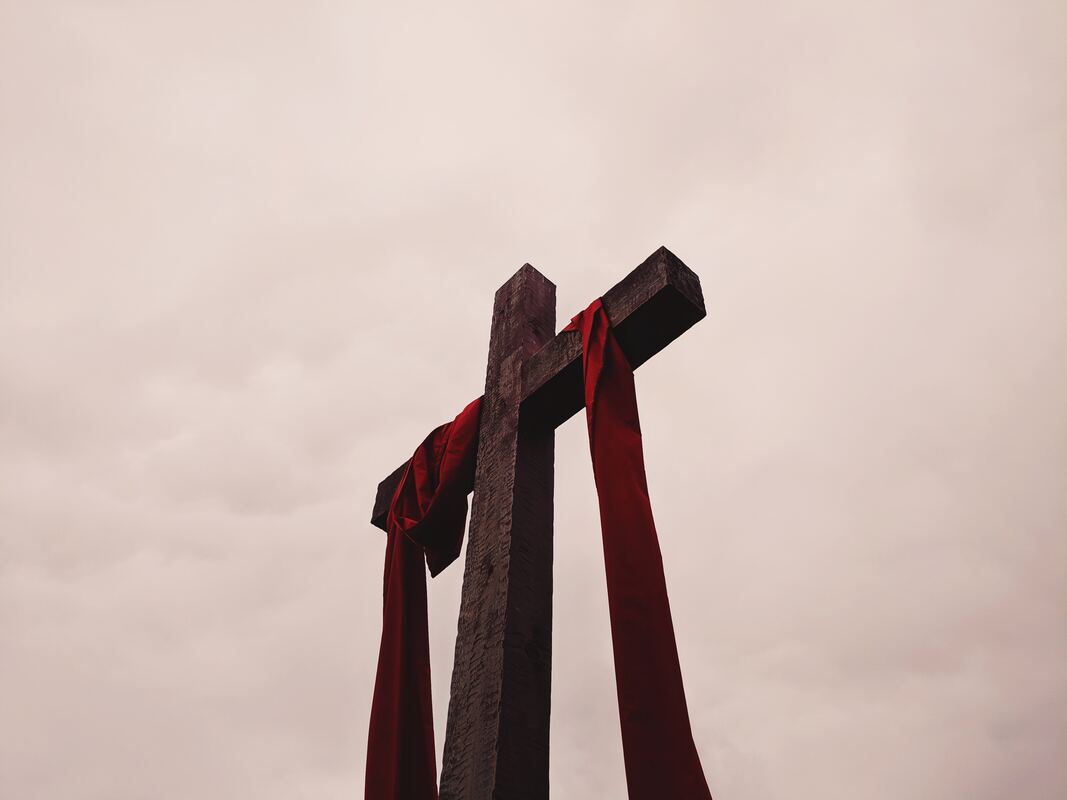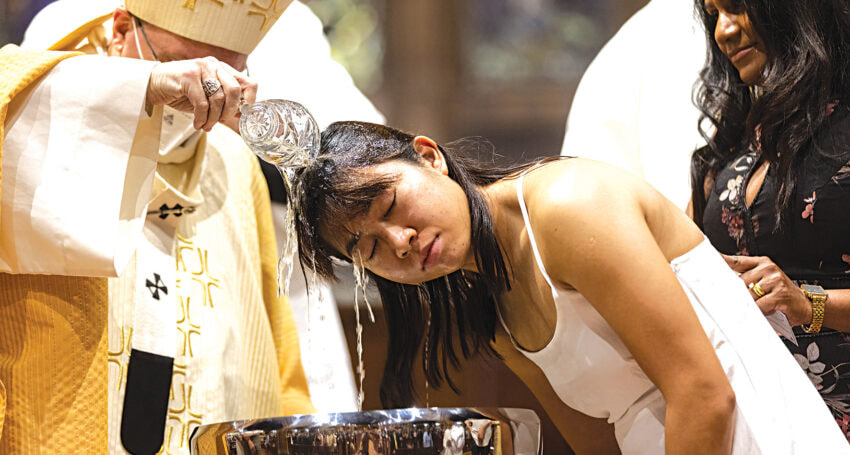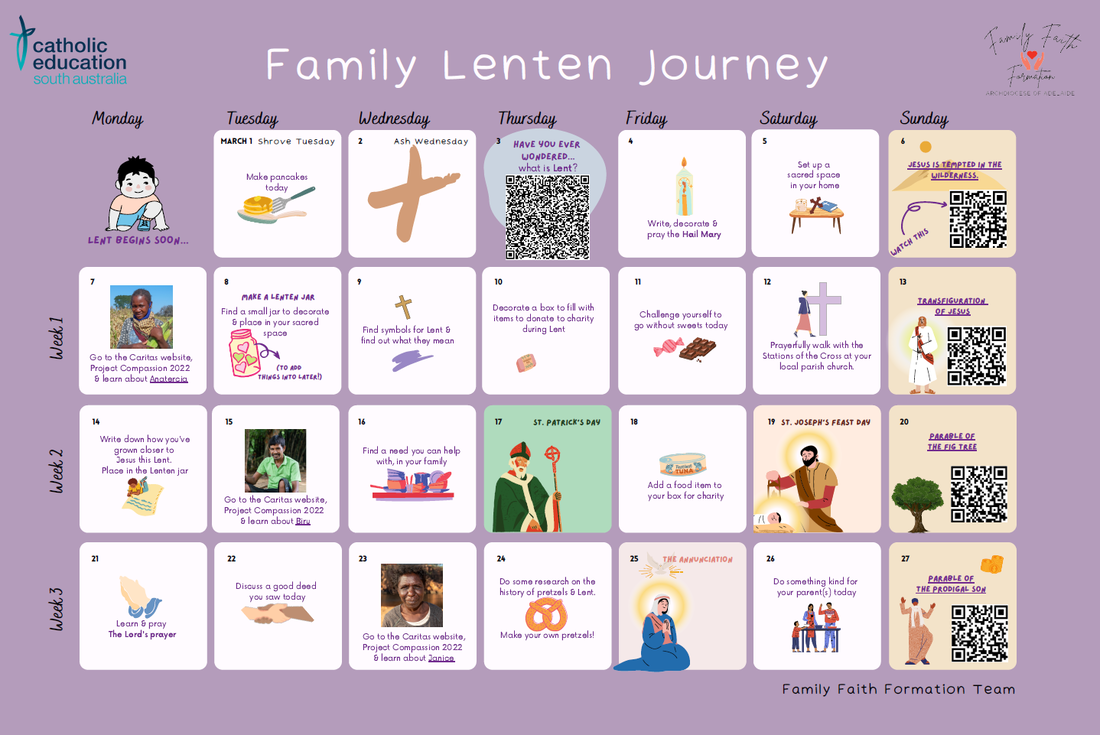|
By Lauren Bierer One Easter, not long after moving to Australia from the United States, my husband and I made a big mistake. We bought our children bikes so that they could play outside but they took it as a sign that Easter was a time for receiving gifts. Every Easter since they have provided us with a wish list and we find ourselves in an unwanted battle.
As church musicians, my husband and I have never used the Easter long weekend as a time for vacation as these days are the most important in the liturgical year and the busiest weekend for musicians. The sacred triduum is a three-day liturgy that begins at dusk on Holy Thursday and ends at dusk on Easter Sunday. Our children have experienced a few Holy Thursday Masses and remember the story of the Last Supper and the ritual of the foot washing. They have seen the altar stripped and flowers removed in preparation for the starkest liturgy in our Church calendar.
0 Comments
By Kathy Horan The season of Lent is a time for reflection on the gospels, renewal and conversion of mind and heart to a gracious God who desires to come close to us. This God, as shown to us by Jesus, is full of compassion and tenderness, slow to anger and rich in mercy.
The Scriptures during Lent resound with messages along the lines of: ‘Come back to me with all your heart; …return to the Lord your God, for he is gracious and merciful, slow to anger, and abounding in steadfast love.’ (Joel 2:12,13); and ‘The time is fulfilled, and the kingdom of God has come near: repent and believe the good news.’ (Mark 1:14) For those in our parish communities who have recently been named as the ‘Elect,’ the season of Lent is a highly significant journey of conversion that will reach a high point at the Easter Vigil when they will receive the sacraments of initiation – baptism, confirmation and first communion. During this time, they, and we, will journey together with Jesus, encouraging one another and supporting one another by reflecting on our faith, taking time to pray and deepening our relationship with the Lord. By Lauren Bierer We each talk about what we are choosing to add or subtract from our day to draw our focus on the Lenten season and essentially our faith.
That could look like screen-free time after dinner to create opportunities for silence or conversation. It could be acknowledging our tendencies to choose words of bitterness or sarcasm and replacing that with words of kindness. It could be as simple as saying a prayer of thanks before dinner. Lent invites us to take a step back and reflect on our life. Many people ask ‘what should I do for Lent?’ or ‘what should I give up for Lent?’ Author: Kathy Horan We have now moved into the season of Lent, a time of renewal where we consciously set our hearts and minds on the liberating message of the gospel that we are called to have life to the full.
We do this in the context of a believing community, and for all of us, this season of Lent is another invitation to see Jesus more clearly, to love Jesus more dearly and to take Jesus’ message of care and concern more seriously. The process of conversion involves the whole community, no matter how long we have been part of it or if we are seeking to find a place to call home within the community. Each year we are graced with this time of personal reflection on our lives in the light of the gospel and we are reminded of our role in the mission of Jesus, to bring good news to the poor. Author: Jenny O'Brien Every year on Good Friday large numbers of Catholics gather in groups to remember the Passion of Christ by praying the Stations of the Cross. In Adelaide many people attend the Monastery at Glen Osmond or Sacred Heart College, Somerton Park, where the Stations are held outdoors.
The concept of following the steps of our Lord to Calvary arose very early in the Church’s history. There is even a tradition claiming that Mary herself visited the various sites in Jerusalem connected with her Son’s passion. There is written evidence that in the fourth century the most important sites were regularly visited by pilgrims, and as early as the fifth century St Petronius, the Bishop of Bologna in Italy, erected a complex of connected chapels in the Monastery of San Stefano representing these various sites in order to bring closer to home the shrines of Jerusalem. Author: Jenny O'Brien The purpose of any calendar is to help people within a given society to order their lives. Most modern countries use the Gregorian calendar, but in actual fact there are about forty different calendars in use around the world today, particularly for determining religious dates. The Church’s Liturgical Calendar is one of these and is not so much concerned with “counting days” but in setting out guidelines for the celebration of the mystery of Christ over the period of a year.
The Liturgical Year is based on the fact that Sunday is the primary day when Christians gather to celebrate the death and resurrection of Christ, with Easter as the most important Sunday of the year. And while Christmas does not necessarily fall on a Sunday, the birth of Christ is the other major feast around which the Church’s year is structured. |
|
Catholic Archdiocese of Adelaide
|



